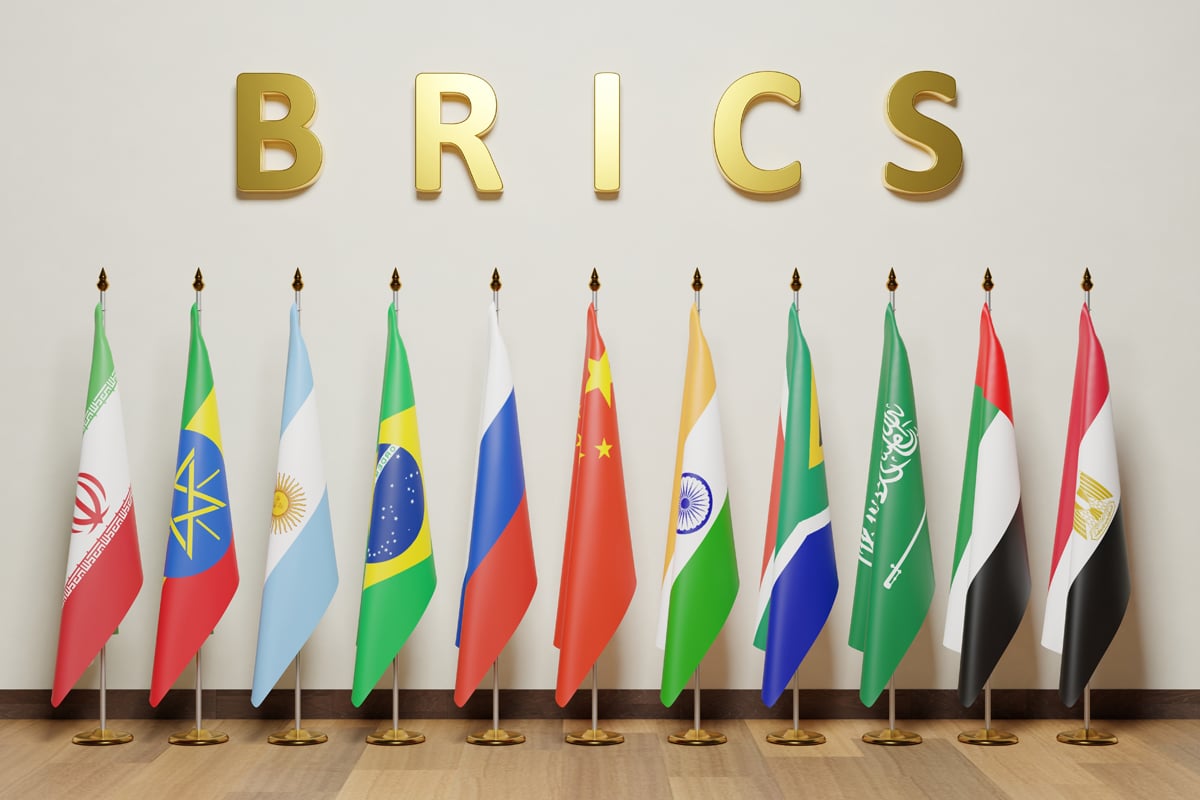Over recent weeks, the BRICS economic alliance has unveiled its plans to develop a blockchain-based payment system and a native currency. In that, the collective may well be prepared to shift the global economic landscape completely.
The effort is part of the bloc’s long-held commitment to de-dollarization. In its efforts, it has promoted local currencies to lessen Western influences on international economics. Yet, with its most recent project, the collective could rapidly change the landscape of international settlements.
Also Read: BRICS: US Dollar Losing Dominance Against Kenyan Shilling
BRICS Blockchain Currency Could Be Global Game Changer


For much of the last year, the BRICS bloc has emerged and embraced rapid growth. After Western sanctions were imposed in 2022, the bloc has sought ways to eliminate Western hegemony on the global economy. This has brought forth its current endeavor into newly implemented technology for that very goal.
The BRICS bloc had previously announced that it was developing a blockchain payment system and native currency, both of which could partner to transform the economic landscape. Specifically, it would completely shift the geopolitical reality and push for enhanced de-dollarization initiatives.
Also Read: BRICS Continues Development of its Currency & Payment System
With this newfound BRICS currency, the bloc could open up a world where the US dollar is not necessary for global settlement. For the economic alliance, that world will come to fruition with the currencies advent. Alternatively, it will provide a greater incentive to join the alliance as a whole.
For many African nations struggling to compete economically, this endeavor promises a plethora of possibilities. There could be massive benefits to autonomy, with the currency’s interconnectedness within alliance members, but separation from Western weaponization could prove invaluable.
However, the continued issue that arises within the BRICS bloc is contention and structure. Subsequently, many have pondered whether the currency would be able to flourish under some of the circumstances the bloc will inadvertently place on it.
Can It Reach Its Full Potential?


As previously mentioned, the BRICS bloc suffers from two important dilemmas in its foundation: contention among members and an unequal distribution of global power and influence. That is to say, conflict is far too often present between some countries, and the collective is undoubtedly top-heavy.
For any BRICS endeavor to prove successful, there must be a commitment to cooperation. Although Russia and China have assured their commitment to such principles, China and India have not. Although a potential expansion nation like Nigeria would welcome a new currency, Saudi Arabia could be hesitant.
Also Read: US Dollar-Dominated World Will End Soon, Says BRICS Ambassador
This is also fed by the expanded inequality of power among members. The bloc currency features ten countries from different statuses. China, Saudi Arabia, the United Arab Emirates (UAE), and India have powerful prospects of growth and flourishment. However, South Africa, Ethiopia, and Egypt are far removed from a state of prosperity.
For the BRICS blockchain-based currency and any initiative to work, these gaps must be bridged. All of the potential is merely theoretical if the nations cannot establish a cohesive infrastructure of plan and execution. Conversely, if they can find a middle ground between emboldening the collective and supporting all nations in their current state, they could forever alter the economic reality of the model world through their native currency.

